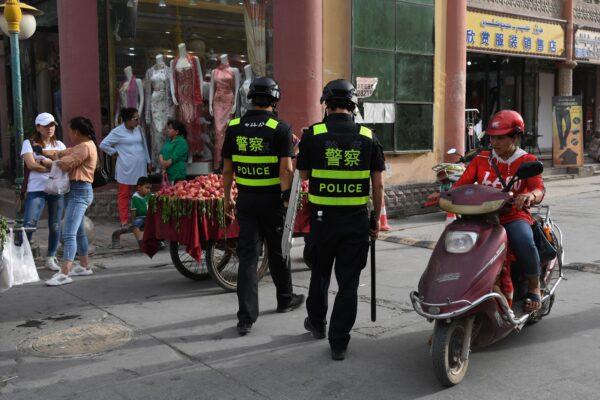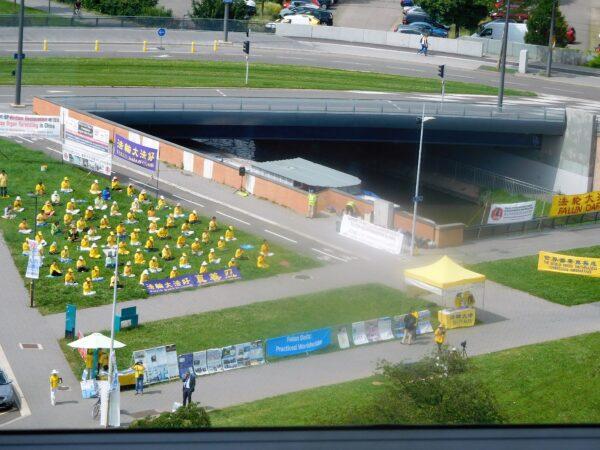Former British member of the European Parliament Nigel Farage on Sunday called for a boycott of goods made in China after he said he came to realise the extent of the Chinese regime’s human rights abuses.
“I’m struck that those of us that are sinoskeptics have been doing this [lobbying] from the perspective that economically ultimately China is bad for us, it undercuts us, it cost jobs; in security terms, it is madness, something that the Australians, the Americans, and many others have woken up to,” he said.
“And we’ve not been making the argument properly, and fully, about the plight of the Falun Gong, the plight of the Uyghurs, about the brutal, truthful fact that it is utterly right to compare the way the Chinese government treats minorities, treats different points of view within its country, it is utterly right to compare that with what the National Socialists did between 1939 and 1945.
Persecution
The leader of the Brexit Party recalled learning from a recent episode of BBC Radio 4’s programme “The Briefing Room“ about the ubiquitous surveillance, brainwashing, and forced sterilization of the Uyghurs, and Huawei’s alleged involvement in it.
“I had got no idea the extent of it,” Farage said.
Farage said he felt “a bit guilty about this,” because during the time when he was an MEP, every month he could see from his office window in Strasbourg, Falun Gong practitioners appealing in front of the European Parliament. They kept telling him about the forced organ harvesting, but he “did nothing.”

Huawei
Speaking about the recent decision to ban Huawei from the UK 5G network, he said the news was particularly significant given that “Boris has declared himself to be a Sinophile, indeed many members of his own family, and of course, of the governing Conservative Party, people he went to Oxford [University] with, have believed that China is our future.”However, he described it as “a sting in the tail” to allow telecom companies to continue purchasing Huawei equipment until the end of the year, and keeping it in use until 2027.
Farage argued that the reason why big mobile phone providers were the “biggest champion” in lobbying for Huawei kit to stay is because “the whole model on which the mobile phone market works is broken” and it caused big debts for providers, which in turn made Huawei’s competitive offer even more enticing.
“You may think of Huawei as being a provider of technology, but they’re just as much a finance house, backed, of course, by the Chinese Communist Party. ... It’s almost like [telecoms providers] have become drug dependent upon Huawei,” he said.
Although he welcomed Johnson’s decision on Huawei, Farage thinks the prime minister could still shift his position on China. He said that the decision regarding the relationship with the Chinese Communist Party depends on the average British people.
“The real power lies with you. Whether China becomes, as it wants to be, the dominant global state, as we go through the 21st century or not, all of it depends on you,” he said.
“If you go on buying Chinese goods, this evil regime will get richer, and will spread itself across, and ... become the dominant player in the world. So it’s up to us. It’s not easy to avoid buying products made in China. ... It’s not easy but that is what we’ve got to do. Wake up everybody.”





